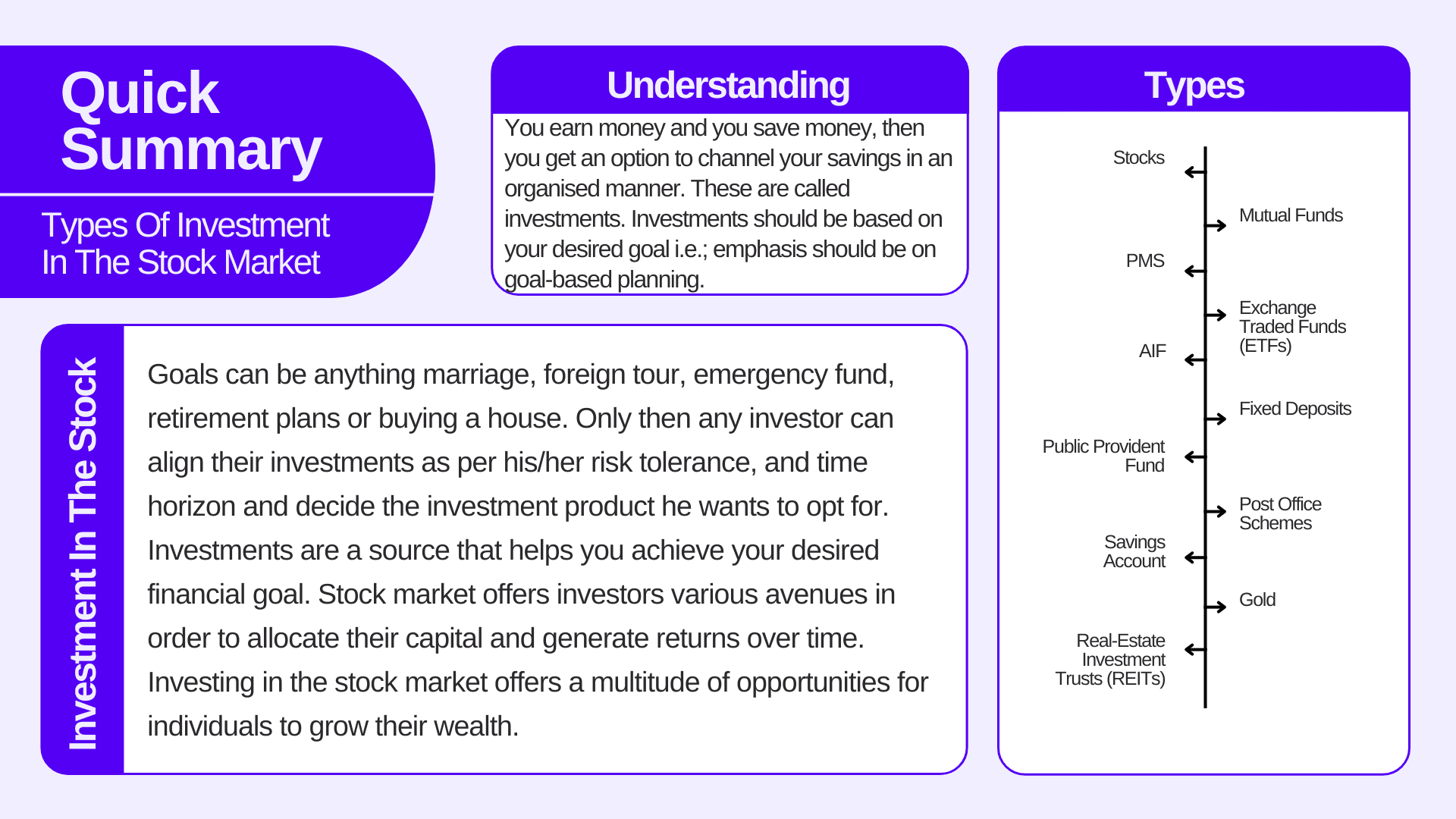| Type | Description | Contributor | Date |
|---|---|---|---|
| Post created | Pocketful Team | Nov-15-23 | |
| Add new links | Nisha | Mar-18-25 | |
| Add new links | Nisha | Sep-03-25 |
Read Next
- Rakesh Jhunjhunwala Portfolio 2025: Top Holdings & Strategy
- BankBeES vs Bank Nifty – Key Differences
- Current Ratio vs Quick Ratio Key Differences
- Best REIT Stocks in India 2025
- Best Data Center Stocks in India 2025
- Best Rare Earth Stocks in India
- Top 10 investment banks in India
- What Is iNAV in ETFs?
- Best Investment Options in India 2025
- Best Energy ETFs in India 2025
- Radhakishan Damani Portfolio 2025: Stocks & Strategy Insights
- Best SEBI Registered Brokers in India
- Best Air Purifier Stocks in India
- Best Space Sector Stocks in India
- Gold Rate Prediction for Next 5 Years in India (2026–2030)
- Difference Between Equity Share and Preference Share
- Vijay Kedia Portfolio 2025: Latest Holdings, Strategy & Analysis
- Raj Kumar Lohia Portfolio 2025: Holdings, Strategy & Analysis
- How to Earn Passive Income Through Dividend-Paying Stocks in India
- Top 10 Richest Investors in the World 2025 – Net Worth, Key Investments & Strategies
- Blog
- types of investment in the stock market
Types of Investment in the Stock Market

You earn money and you save money, then you get an option to channel your savings in an organised manner. These are called investments. Investments should be based on your desired goal i.e.; emphasis should be on goal-based planning. Goals can be anything marriage, foreign tour, emergency fund, retirement plans or buying a house. Only then any investor can align their investments as per his/her risk tolerance, and time horizon and decide the investment product he wants to opt for. Investments are a source that helps you achieve your desired financial goal. Stock market offers investors various avenues in order to allocate their capital and generate returns over time. Investing in the stock market offers a multitude of opportunities for individuals to grow their wealth.

In today’s blog, we will be classifying investments into three categories.
- Modern investment options or investment in the stock market
- Traditional investment options
- Other investment options
Below is a detailed explanation of the types of investments that are widely used by investors.
Modern Investment Options
Stocks

Stocks are the most chosen and common investment option. Buying shares of a specific company is known as investing in stocks. The investor becomes the partial owner of the company and can enjoy various advantages that include capital appreciation, dividend payouts and voting rights. Stocks are issued by various companies. The initial listing of the stocks is labelled as an IPO (Initial Public Offering) and is introduced in the primary market but is traded in the secondary market. Stocks are volatile and can be risky to invest in.
Mutual Funds
Mutual funds collect money from numerous investors to invest in a diversified portfolio of stocks, bonds, or other assets. These funds are managed and curated by professional fund managers and hence become suitable for investors who have less time and expertise to manage their portfolios. When you invest in mutual funds, NAV (Net asset Value) is allotted to you which reflects the net value of the assets that are chosen by the fund manager to invest your money in. Furthermore, SIP/STP/SWP are different ways through which we can invest in mutual funds.
PMS

PMS stands for Portfolio Management Services and is generally meant for HNIs (High net worth Individuals) and has a minimum ticket size of Rs 50 Lakhs. There are 2 types of PMS. Discretionary and non-discretionary PMS. PMS fund managers charge fees from their clients based on the asset under management. Individuals, NRIs, HUF, partnership firms, and proprietorship firms can invest in PMS.
Bonds
Bonds are fixed-income investments or debt instruments that are issued by the government. When you buy a bond, you are giving money to someone who issues the bond in exchange for interest or coupon, which is paid at regular intervals, and the return of the bond’s face value at maturity. Bonds are regarded as lower-risk investments when compared to stocks. There are generally three types of bonds.
- Government Bonds/Securities-
Tradeable bonds which are issued by the central and state governments. These bonds have a fixed coupon rate and maturity. For example, treasury bills.
- Corporate Bonds
These bonds are issued by private companies and NBFCs which carry a bit higher yield than government bonds.
- Municipal Bonds
These bonds are issued by state municipal corporations to fund projects.
AIF

AIF stands for Alternative Investment Funds. It is a privately pooled investment that collects funds from high-class investors. These investors are institutions and high net-worth individuals who have an idea about the higher risk and complex investment arrangements.
Exchange Traded Funds (ETFs)
ETFs are investments that are traded on stock exchanges just like any individual stock and provide investors with a diversified portfolio of assets. ETFs have a very low expense ratio.
Read Also: How Does the Stock Market Work in India?
Traditional Investment Options
Fixed deposits

FDs are traditional methods of saving and investment and are good for investors with low or nil risk appetite. The fund is deposited in the bank account in a lump sum for a fixed period of time and at the time of maturity, the depositor gets back the principal amount along with the interest. Interest on FDs is fixed by the banks and offers you guaranteed returns.
Public Provident Fund

PPFs are long-term saving schemes offered by the Indian government. PPFs generally have a lock-in period of almost 15 years. However, individuals can withdraw money partially after a tenure of 5 years is completed from the date they have opened the account.
Post Office Schemes

It is a fixed-income investment offered by the Post Offices. Investors are given monthly interest on their investment amount. This investment option comes with low to moderate risk.
Savings Account
A savings account is a basic, interest-bearing deposit account offered by banks. It provides a safe place to store money, and interest is earned on the balance. this account has low risk and high liquidity but has low returns.
Other Investment options
Gold
Gold is considered a safe haven when it comes to investments. Gold is highly liquid and can be easily bought and sold. At times of volatility in the market, the best option to bet upon is gold. It is a popular investment option because of its historical significance. Gold has been a store of value for ages and is believed to be a symbol of wealth. It helps to diversify the risk of your portfolio. You can invest in physical gold, gold ETFs and sovereign gold bonds.
Real-estate investment Trusts (REITs)

Real estate is a great source of rental income from properties because there is a significant growth in the value of the asset be it land or a building, over time. This increases the value of the invested capital which is considered as beneficial for the investor. Real estate investment trusts (REITs) allow investors to invest in real estate without owning physical properties directly. REITs are a source of indirect investment in Real Estate. REITs have emerged as a good option to enable investors to expose themselves to smaller outflow commitments.
Read Also: How to Start Stock Market Trading With Low or Limited Capital
Conclusion
Every investment option has different attributes, returns and risk profile. It is always suggested to investors to conduct systematic research or seek advice from financial professionals before making investment decisions. Choosing the right option completely depends on your financial goals, risk tolerance, and investment horizon. Diversification of portfolios across different investment types can help you lower the risk and shape a well-balanced portfolio that aligns well with your financial goals.
| S.NO. | Check Out These Interesting Posts You Might Enjoy! |
|---|---|
| 1 | Types of Demat Accounts in India |
| 2 | Features and Benefits of Demat Account |
| 3 | Can I Have Multiple Demat Accounts in India? |
| 4 | How to Open a Demat Account Online? |
| 5 | Small-Cap ETFs to Invest in India |
| 6 | Best Sip Apps in India for Investment |
FAQ (Frequently Answered Questions)
How do ETFs differ from mutual funds?
ETFs are traded on stock exchanges like individual stocks whereas asset management companies sell mutual funds.
How to choose the right investment as per my financial objective?
Pay attention to factors like your investment horizon, risk appetite and reason for investment and seek advice from a professional.
Are FDs modern or traditional methods of investment?
FDs are a traditional way of investing.
What is the full form of REITs?
REITs stand for real estate investment Trusts.
Is gold highly liquid?
Yes, gold is considered highly liquid and is used as a hedge against inflation.
Disclaimer
The securities, funds, and strategies discussed in this blog are provided for informational purposes only. They do not represent endorsements or recommendations. Investors should conduct their own research and seek professional advice before making any investment decisions.
Article History
Table of Contents
Toggle